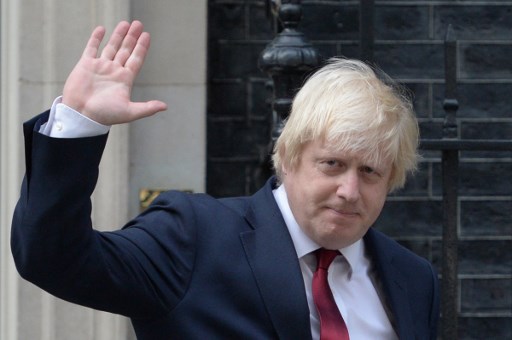
Sue Wilson Writes: Why Boris could be our best bet to stop Brexit
 Sue Wilson of Bremain in Spain takes a look at the candidates for the next Tory leader and argues that a Brexiteer could be the best tool to stop Brexit.
Sue Wilson of Bremain in Spain takes a look at the candidates for the next Tory leader and argues that a Brexiteer could be the best tool to stop Brexit.
Since Theresa May bowed to intense pressure from the Conservative Party and handed in her resignation, many people have asked: “is she the worst prime minister in living memory”? Having seen the list of potential leadership candidates and listened to their proposals, it’s tempting to add the words “thus far”. While I wouldn’t say “come back Theresa, all is forgiven”, many Brits living in Spain are wondering if her successor will worsen our fate. Currently, 13 candidates are vying for the top job and the tally is rising daily. It’s almost easier to list the members of May’s cabinet who aren’t throwing their hats into the ring!
Every candidate seems determined to deliver Brexit – including those who weren’t initially Brexit supporters. Most go a step further, stating that a no-deal Brexit should be kept on the table, even while expressing a firm desire to close a deal. Some, such as former cabinet members, Esther McVey and Dominic Raab, are willing to pursue no-deal as their preferred Brexit option. It is only Rory Stewart, secretary of state for international development, who is rightly stating that a no-deal Brexit would be disastrous for the UK.
Boris Johnson, currently the favourite candidate, has been uncharacteristically quiet since the leadership contest started. Perhaps he’s preoccupied with his court summons over allegations of lying to the British public. Maybe his lawyers are telling him to keep quiet, in case he says anything else incriminating.
Another common topic amongst leadership contenders is renegotiating a deal with the EU. Jean-Claude Juncker, the European Commission president, has stated categorically that the Withdrawal Agreement negotiations are closed. In addition, the EU negotiating team is currently being disbanded, yet still we hear delusional talk of returning to Brussels to renegotiate. It’s clear from the candidates’ rhetoric that they’re not aiming their proposals at the country, but at those who can vote for them directly. Initially, that means the Conservative party MPs who will narrow the choice down to just two candidates. The final decision will be made by around 120,000 ageing Conservative Party members, predominantly Leave voters. That audience makes it unlikely that we’ll see any Remain/anti-Brexit leadership candidates – they wouldn’t stand a chance.
Brits in Spain are naturally worried that a new Prime Minister will further risk our citizens’ rights and make a no-deal Brexit more likely. The Spanish government has devised comprehensive plans to protect us if no-deal occurs, but those plans rely on reciprocity by the UK government. Some people are understandably cautious about relying on the Spanish government’s generosity, should the worst-case scenario become a reality.
While the more Brextremist leadership candidates are causing considerable concern, I would personally welcome a staunch Brexiteer as May’s replacement. The more extreme the new PM’s position on Brexit, the less support they’ll garner from parliament and the public. They’ll waste further time trying to renegotiate a deal with the EU that is already closed and trying to garner support in Westminster. The more extreme the proposals, the higher the level of rebellion that can be expected from parliament and the public alike. If I had one question for the leadership contenders, it would be: “why on earth do you want the job right now”? Surely, anyone with the skills, intelligence and humanity necessary to make a good prime minister would have the sense not to touch this poisoned chalice with 10 proverbial bargepoles tied together. With the impossibility of delivering Brexit, or gaining consensus in parliament to do so, the new prime minister will be faced with a stark choice. No-deal will be off the table – it’s the only option about which parliament is abundantly clear. Parliament has prevented no-deal before and will do so again. That only leaves putting the question back to the public, either through a general election or a second referendum.
The Conservative party, after its disastrous performance in the European elections and in recent polls, will want to avoid a general election at all costs. Theresa May might be remembered by future generations as the worst prime minister in modern history. The legacy of her successor could be as the shortest serving prime minister in history. I didn’t shed any tears for May and I won’t be shedding any for her successor either. Brexit is dead. How many more Prime Minister’s will it take before Westminster accepts that reality?
By Sue Wilson – Full article from The Local





